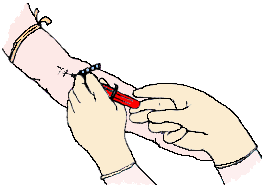
The first thing that comes to mind when someone asks you to do thyroid tests is "Oh! But they are expensive!"
You talk to a doctor on why routine screening of women's thyroid
is not done , say annually, (just like you do lipids, cardiac
stuff, mammograms, smears and stuff), and one hears an argument of
how in a country like India , spending on preventive tests , on
stuff like thyroid, is a "luxury " .
WHY SO ?
In India, attributing womens' health problems to anything like a thyroid imbalance , is a complicated thing. Majority of India's people live in small towns and villages. Its not uncommon, to find that most woman will hesitate to go to a doctor for themselves; one reason is sociological conditioning , where women simply dont communicate with outsiders.
If the woman has any problems, its her fate. If you are a male in the family, you are entitled to have the whole family worry about you, you get to see the doctors and the family will even consider going into debt, so you can get the required medical care and yes, nutrition.
Women take their children to the local primary health centre for the vaccinations and stuff, thanks to the huge publicity those campaigns get. But they suppress their own Gynaec and other problems; and as far as psychological problems go, one doesnt talk ; there are always know-it-all elders in the family.
Even in educated people of certain communities, the husband will accompany the wife to the doctor. The doctor gets his information about the medical problem by asking the husband questions , and he answers . A gynaec doctor probably deserves a prize for reaching a correct diagnosis from this, particularly as talking about intimate personal things in front of your husband and a total outsider is not something a woman is looking forward to.
So we see cases where women have withdrawn into shells, become uncommunicative. They are actually depressed . But local experts declare them as affected with spirits. If its a question of childlessness, its even worse. She is psyched into taking all the blame, and the husband gets married again with her complete blessings, and they get an extra guilty helper around the house.
A woman's well being is decided by 3 major systems : the endocrine system, the immune system, and the brain. Its not clear which of these comes first or what causes what. What is very clear is that all your hormones must exist in a harmonius balance if you are to exist as a healthy woman.
What we find today, is that most of the time "symptoms" get treated by doctors. Its fashionable in upwardly mobile cultures to say you are suffering and taking treatment for depression or whatever. The infertile types are encouraged to go in for fancy sounding acronym protocols. Lack of understanding of stages in a womans reproductive life, cause taut-wire tensions.
Many times, its a thyroid imbalance. And its rarely checked. When it is, its considered expensive.